As is the case every year before 24 April, various radical groups both in Armenia and in the Armenian Diaspora have carried out their propaganda campaigns and attempted to create public opinion with claims that are disconnected from historical and legal facts. Such activities reach their peak on every 24 April. On that day and the days leading up to it, the tragic events that took place during the First World War are cunningly distorted and repeatedly brought to the agenda with the aim of pushing Türkiye into a corner. However, in 2015 - the centenary of the 1915 Events, meaning almost a decade ago, it had become clear that the desired result against Türkiye could not be achieved despite the maximum pressure that had been applied against the country. Such activities, which derive their power from a pathological anti-Turkish sentiment, have now turned into a pointless psychological war of attrition.
The Armenian Diaspora is not a monolithic entity, however, the most vociferous groups in the Diaspora are unfortunately the radical groups trying to continue the above-mentioned campaign against Türkiye. While these groups maintain their irrational stance, Armenian Prime Minister Nikol Pashinyan published on his personal Facebook page his speech on the "Social Psychology of the Republic of Armenia", which was prepared for the Civic Contract Party's political school. Referring to the 1915 Events, Pashinyan avoided the word "genocide"[1] and instead used the term "Great Calamity" (Meds Yeghern/Մեծ եղեռն)[2].
In parallel to this, Andranik Kocharyan, a member of parliament from Armenia's ruling Civil Contract Party, stated; "For example, [the number of Armenians who died in the 1915 Events/"genocide"] could be more or less than 1.5 million. Why hasn't our country found a solution to this problem until today? The Jewish people have done it, can't we do it? This is also important for our future relations...", thus raising the need for a realistic investigation of the issue. Kocharyan called for a list of the names and last names of those who are claimed to have died during the 1915 Events to verify the veracity of the claims.[3]
As can be understood from the above explanations, the agendas of the Armenian government and the Diaspora have diverged. This situation raises the necessity to question the position and attitude of the Diaspora, which is trying to corner the government in political, diplomatic, and many other aspects by pursuing a policy completely contrary to the principles of the Prime Minister and the ruling party, which the people of Armenia elected democratically, trusting them to secure the future of their country. During this period of great efforts to normalize relations between Türkiye and Armenia, the Diaspora’s attitude not only negatively affects the relations between the two countries, but also causes the Armenian people to be stuck in unsubstantiated allegations and unable to overcome their (possibly manufactured) traumas.
While even Armenia’s leadership expresses skepticism towards the vengeful and militant contentions, the Diaspora and radical Armenian groups, encouraged and used as political leverage against Türkiye by the Western countries where they are based, continue their genocide allegations without any restraint. On the one hand, there are Western efforts to detach Armenia from Russia and draw it into the West’s own sphere of influence, while on the other hand, unrealistic allegations against Türkiye, Armenia's gateway to the West and its only NATO member neighbor, continue. The contradiction created by these claims being pursued with the support and encouragement of some Western countries is difficult to either understand, explain, or accept.
*Photograph: Nikol Pashinyan (left), an anti-Pashinyan government demonstration in Los Angeles/USA (right) - Source: Anadolu Agency/Eurasianet
[2] There are authors who claim that this expression inevitably refers to the "Armenian Genocide". Indeed, when the mentioned phrase is searched on the internet, one will come across many sources that use the term "genocide". Nevertheless, this is an issue that continues to be debated.
© 2009-2025 Center for Eurasian Studies (AVİM) All Rights Reserved
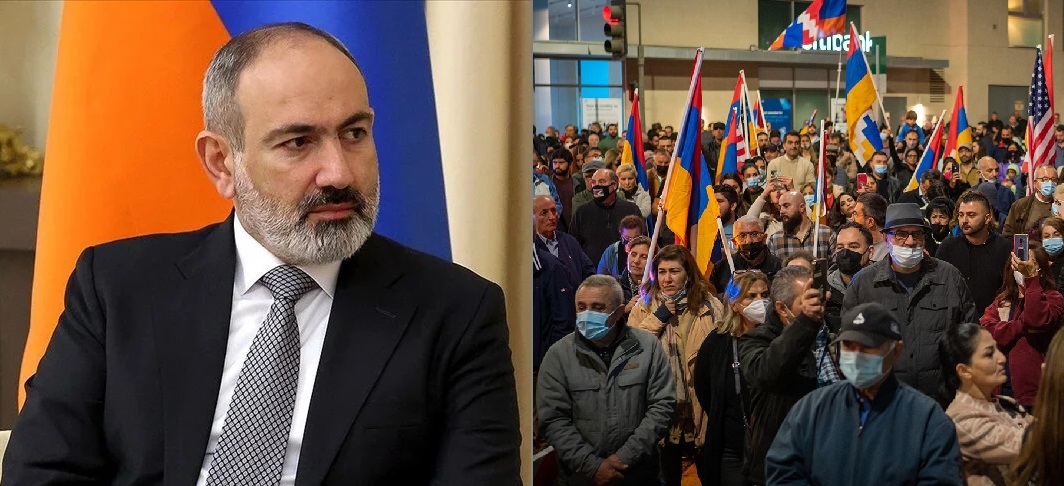
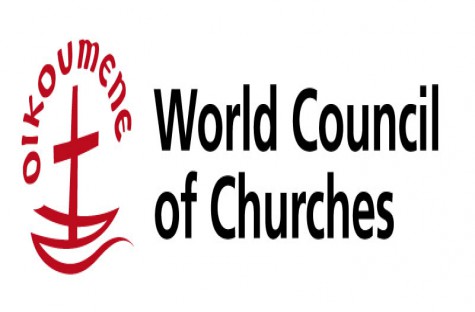 WHAT IS THE WORLD COUNCIL OF CHURCHES?
WHAT IS THE WORLD COUNCIL OF CHURCHES?
 TÜRKİYE’S SOUTH CAUCASUS POLICY AND THE WEST’S CONFLICTING APPROACH
TÜRKİYE’S SOUTH CAUCASUS POLICY AND THE WEST’S CONFLICTING APPROACH
 THE DIVERGENT AGENDAS OF THE ARMENIAN GOVERNMENT AND THE DIASPORA
THE DIVERGENT AGENDAS OF THE ARMENIAN GOVERNMENT AND THE DIASPORA
 WESTERN POLITICAL CHRISTIANITY IN THE NEW TRUMP ERA
WESTERN POLITICAL CHRISTIANITY IN THE NEW TRUMP ERA
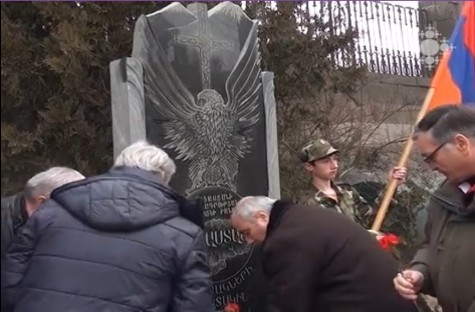 ARMENIA AND THE VENERATION OF TERRORISTS
ARMENIA AND THE VENERATION OF TERRORISTS
 JOINT STATEMENT OF THE CO-CHAIRS OF THE MINSK GROUP ON PEACE IN NAGORNO-KARABAKH
JOINT STATEMENT OF THE CO-CHAIRS OF THE MINSK GROUP ON PEACE IN NAGORNO-KARABAKH
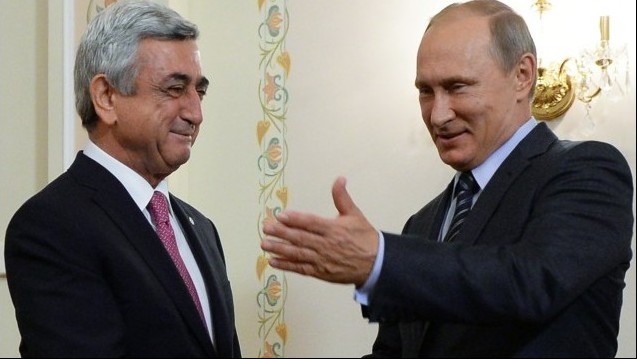 RECENT CHANGES IN ARMENIAN GOVERNMENT
RECENT CHANGES IN ARMENIAN GOVERNMENT
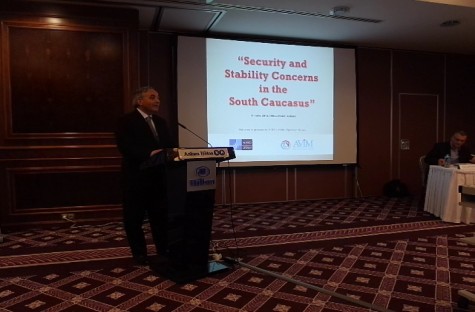 AVIM’S CONFERENCE ENTITLED SECURITY AND STABILITY CONCERNS IN SOUTH CAUCASUS
AVIM’S CONFERENCE ENTITLED SECURITY AND STABILITY CONCERNS IN SOUTH CAUCASUS




























